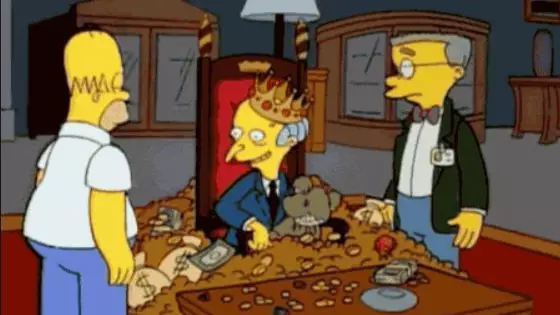
You don't have to be a raging communist to suggest that the world's economy is slightly unequal these days.
Just how unequal it is - and perhaps more importantly, how much more unequal it is becoming - has been drawn in a stark light of late, with a new report announcing that the richest one percent of the world's population will own as much as 66 percent of its wealth within the next 15 years.
The House of Commons Library has released the study, which analyses the growth in inequality that has occurred since the financial crash in 2008. Shockingly, it projects the future growth in the wealth gap to culminate in one percent of the world's population owning 66 percent of its wealth by the year 2030.

The reasoning given by the researchers behind the study, to explain the drift towards the top, included higher rates of saving by the already rich and accumulation of equity. This allows the wealthy to sit on their properties and let the interest growth - both essentially the hoarding of wealth.
Advert
The research claims that the wealth of the richest one percent grows at six percent per annum, outstripping the three percent annual growth of everyone else, causing a movement of money to the top.
Polling that accompanies the study indicated that the majority of people are unhappy about wealth inequality. Thirty-four percent said that the super-rich would have the most power in 2030, more even than governments (28 percent).
The pollsters also found that those surveyed feared the growing influence of wealthy people in politics, with 43 percent identifying the 'super-rich enjoying unfair influence on government policy' as a fear, while others feared a growth in corruption.
Advert
The research was instigated by Liam Byrne, a former Labour cabinet minister, and the team investigating included academics, business people, trade unionists and members of civic organisations.
"If we don't take steps to rewrite the rules of how our economies work, then we condemn ourselves to a future that remains unequal for good," said Byrne.
Advert
"That's morally bad, and economically disastrous, risking a new explosion in instability, corruption and poverty."
Danny Dorling, an academic at Oxford University, added: "Even if the income of the wealthiest people in the world stops rising dramatically in the future, their wealth will still grow for some time.
"The last peak of income inequality was in 1913. We are near that again, but even if we reduce inequality now it will continue to grow for one to two more decades."
Featured Image Credit: 20th Century FoxTopics: World News, Money, Interesting